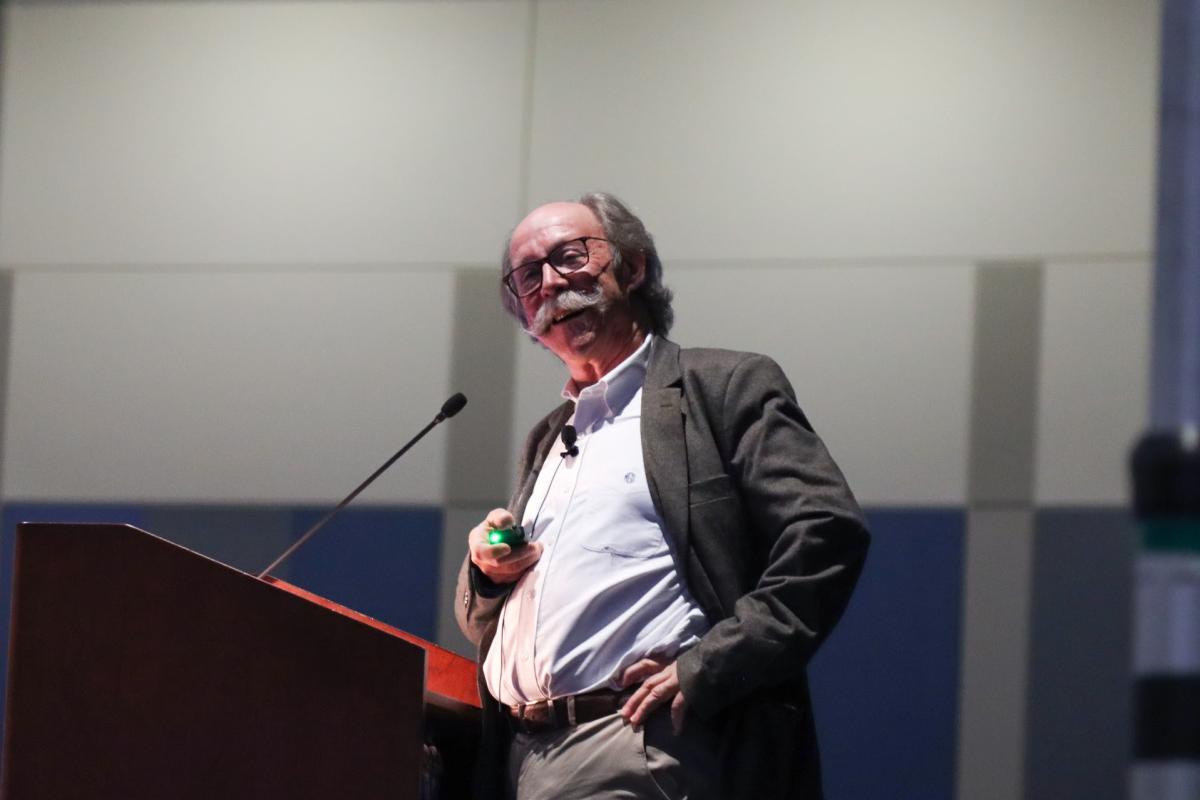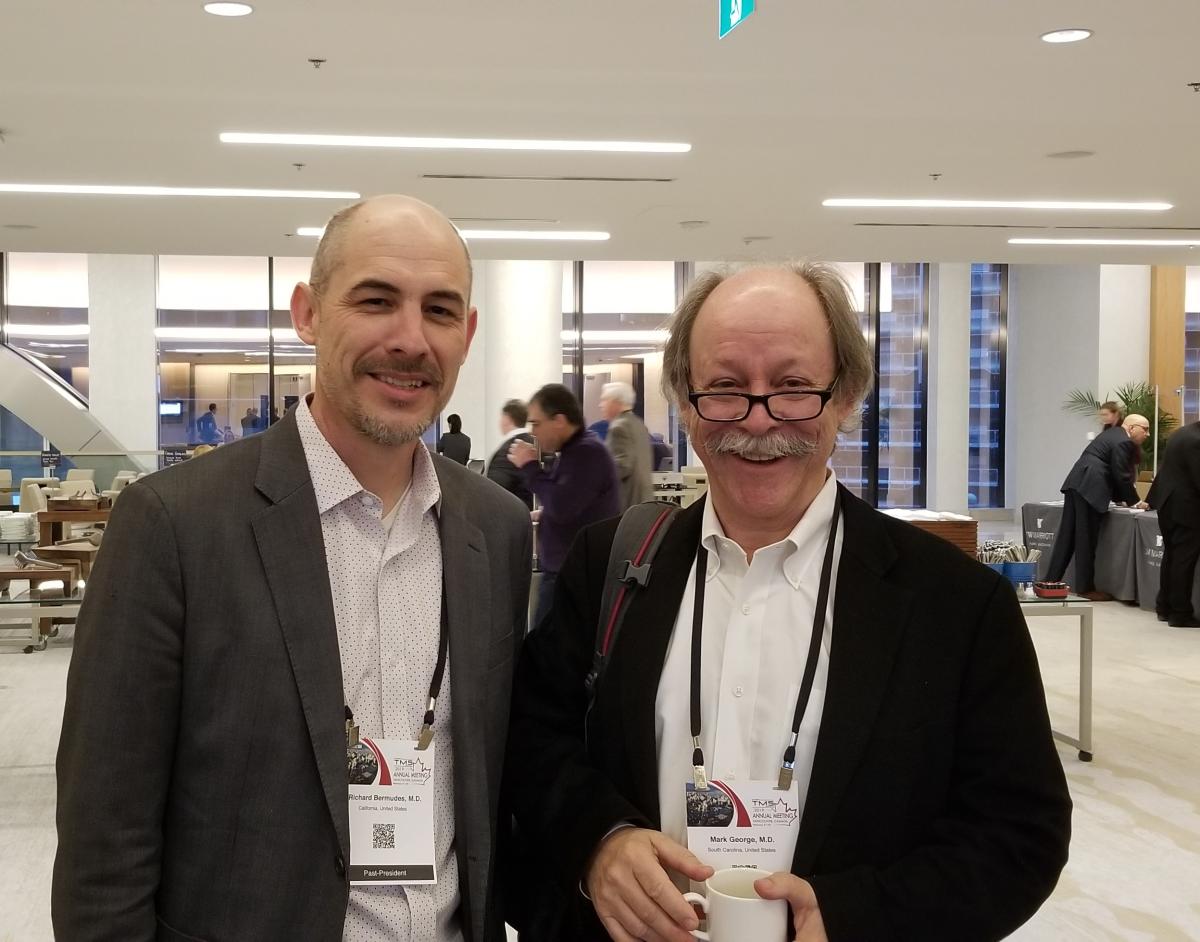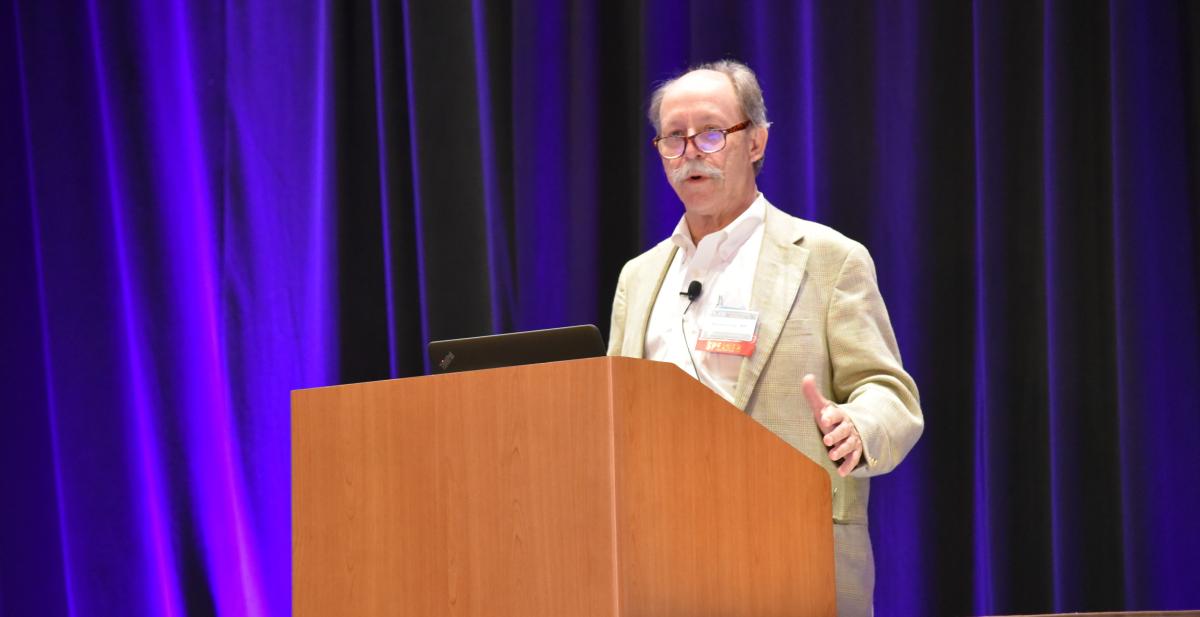Wed, 02/08/2023 - 10:05



Article by Jordan Galerkin
Dr. Mark George, Director of the Brain Stimulation Division and professor at the Medical University of South Carolina, is widely regarded as a founding father of clinical TMS. The Clinical TMS Society is excited to congratulate Dr. George on the most recent recognition of his achievements, the 2023 APA Award for Research in Psychiatry. Dr. George sat down with us virtually to share his thoughts on the award, as well as give insight into his current research and the potential future of the field.
“[The award] is for a body of work that ‘changes the practice of psychiatry,’ and so for me that is really special…I’m the person that’s named on it, but I know it’s not me alone,” Dr. George says. “It’s the whole body of work that I and all my colleagues…have been doing over all this time, almost 30 years now. I view it as an award to the field…of brain stimulation and particularly clinical TMS.”
This award represents a recognition of the field in more ways than one. Dr. George shares his early experience at APA meetings when many were still skeptical of brain stimulation. “For many years, there was this standoff approach to the grandmother of brain stimulation methods, ECT,” Dr. George explains. He shares that the APA would host their meetings separately from the ECT meetings, which would be in the same city but at a different hotel. “I’ll never forget when I was at one of the very early ECT meetings where I raised the idea of brain stimulation with TMS that did not cause a seizure, and whether that might treat depression, and I was asked to leave the meeting…the idea was so heretical,” Dr. George says. “I think this award shows that now our field of brain stimulation, and particularly clinical TMS, is accepted more widely by the American psychiatric community.”
The field has certainly evolved since those early meetings and continues to do so with the help of researchers like Dr. George, who feels blessed to continue such research. “I’m such a lucky guy,” he says with a smile. “There is a lot of really exciting research going on.” Dr. George explains that throughout his career, he has always been interested in cutting-edge technology in the field. “I want to be impartial, and I want to be able to follow the science where it goes,” he says. “And I really like the idea that I might be disruptive. If there’s a new technology that comes along that’s better for our patients, I’m all about it and I’m fine to move on.”
Dr. George also gave some insight into his current research. “In addition to TMS, I’m working on transcranial pulsed ultrasound. We are doing a fascinating study where we are stimulating the amygdala in anxiety patients with great results so far,” he explains. “We are aggressively looking at vagus nerve stimulation (VNS) for a couple of different disorders, and then paired vagus stimulation through the ear to promote learning and stroke recovery, which is interesting.” He is also actively researching new ways to improve TMS. “We are recording EEG in our depressed patients, and we found that if we precisely time the TMS pulse with the EEG, we can get a bigger brain effect,” Dr. George says. “We’re really excited, because we may have an EEG marker of brain changes that shows neuroplasticity happening, and it’s also linked to the antidepressant effect.” This would also allow for a review of the brain effect after a single session, which would allow then for modification of treatment as it goes on. “At least in the dataset that we’re looking at now, we were able to predict with 100% sensitivity who is going to go on and get antidepressant effects based on this EEG change, so it’s quite promising.”
The research is so promising, in fact, that Dr. George and his team have applied for a grant from DARPA (Defense Advanced Research Projects Agency) to conduct noninvasive brain stimulation augmenting circuits for the prevention of suicide. “It’s just amazing that the defense department sees how important [TMS] is for the future,” Dr. George says. “In a nutshell, there are a lot of exciting projects, and what we’ve done so far is just scratching the surface of all that we can and will do,” he shares. “I’m so grateful to be involved in this brain stimulation revolution.”
Dr. George has also been involved with the Clinical TMS Society since the beginning. He was part of the early executive board and was heavily involved in the training since he has been conducting TMS trainings for over twenty years. “The PULSES course that the Society puts on is an extension and refinement of the CME work that we’d done here,” he explains. “I’ve really enjoyed watching the Clinical TMS Society grow. One of the other real blessings in my life is that I’ve worked with wonderful people – some of them students who have graduated and gone on [to join the Society]. So, for me, the Society meetings are a huge family reunion,” he says.
In the future, Dr. George believes that the field of brain stimulation and the Society will continue to grow. “The sky’s the limit,” he says. “Any brain disorder…where we know there’s a disruption in circuitry is fair game for treatment with brain stimulation…What we need to understand better is how to drive the stimulation, in this case, TMS, in a way that produces durable plasticity. So, to the degree that we can find biomarkers – and that’s why I’m excited about this EEG stuff – that tell us we’re on the right path…we can be much more efficient in causing changes with TMS.” He believes that TMS and brain stimulation in general will become more common in the future because it is more efficient and durable than medications. “Will brain stimulation be as important in psychiatry as medications are? I actually think it will,” he says.
As the field itself grows, he believes the Society will continue to grow as well. “I wonder whether the Society might choose to expand the umbrella to include brain stimulators who are using other devices. For example, vagus nerve stimulation is approved for depression or epilepsy, and a lot of Society [members] are VNS programmers,” he says, though he acknowledges the importance of launching the Society around a specific treatment modality, TMS.
Dr. George also shared his advice for psychiatrists who are just starting out on their TMS journey. “Take the time to educate yourself…[learn] what we know about TMS and what we don’t know about TMS. Take the time to go to a hands-on training course and kick the tires of the different devices,” he says. “Make sure you know the evidence for or against different protocols and different ways of delivering TMS.”
“I always say that when I go buy a car, the car dealer…will show me specifics about that particular car, but they don’t give me a driver’s license. To get a driver’s license, I have to go someplace else that gives me the 10,000-foot view of what driving is about,” he explains. “I urge people to use the Society to go to approved training courses where you get a driver’s license and learn how to do TMS in a big way. And you learn a lot!” Dr. George acknowledges that now more than ever, providers need to be aware of what patients already know and what they may ask for. “Your patients go to Google, so you need to at least be aware of what they’re reading, and have your own formed opinion. If they want you to go off the dime and treat hair loss [with TMS], you want to say, ‘Well, I’ve read the literature, and I’ve looked at Dr. George, and it doesn’t work for hair loss!” he says with a laugh.
Dr. George leaves us with some great advice not only for new TMS providers but seasoned veterans. “Take the time to learn it and learn it well because it’s going to be constantly changing. Be prepared for disruption. Something like theta burst come[s] through and just changes overnight a lot of how we deliver [TMS],” Dr. George explains. “The disruptions are always in the setting of faster, better, and cheaper for our patients, so they’re good disruptions, but just be aware that they’re going to happen, and accept them. Go to the [Society] meeting every year and keep up because there’s such good science.”